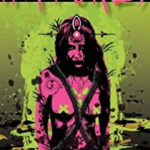critical ecologies
The Maypole is the Medium: A Review of The Networked Wilderness by Matt Cohen
From early modern texts to "publishing events," Madeleine Monson-Rosen's review follows Matt Cohen's exploration of the "networked wilderness." It turns out that the English colonists and native Americans were already information theorists, centuries before cybernetics emerged at MIT.
Review of Stacy Alaimo’s Bodily Natures: Science, Environment, and the Material Self

Beginning his review by reflecting on the book's cover art, John Bruni speculates that a punk aesthetic runs throughout Alaimo's posthuman environmentalism. Providing brief treatments of each chapter, he argues that the book's trans-corporeal understanding of the relationship between bodies and places disrupts "the very heart of what we know about ourselves."
Finding the Human in “the messy, contingent, emergent mix of the material world”: Embodiment, Place, and Materiality in Stacy Alaimo’s Bodily Natures
In this review Veronica Vold charts the posthuman environmental ethic in Stacy Alaimo's Bodily Natures: Science, Environment, and the Material Self and notes how the text draws together issues of race, (dis)ability, and the environment in a way that disrupts the boundaries between bodies and places.
In Praise of “In Praise of Overreading”
Is 'overinterpretation' good or bad? Is it even possible, and is it ever enough? (Or are we reading too much into this?) Clint Burnham shadows Colin Davis as he traces the interventions of a "wild bunch" of critics, theorists, and philosophers, who grapple with the question of what counts as a reading of a literary text.
Unworldly Reflections
In this review of Robert Chodat's Worldly Acts and Sentient Things, Stephen Dougherty argues that Chodat's inquiry could have profited from a deeper engagement with posthumanist thought.